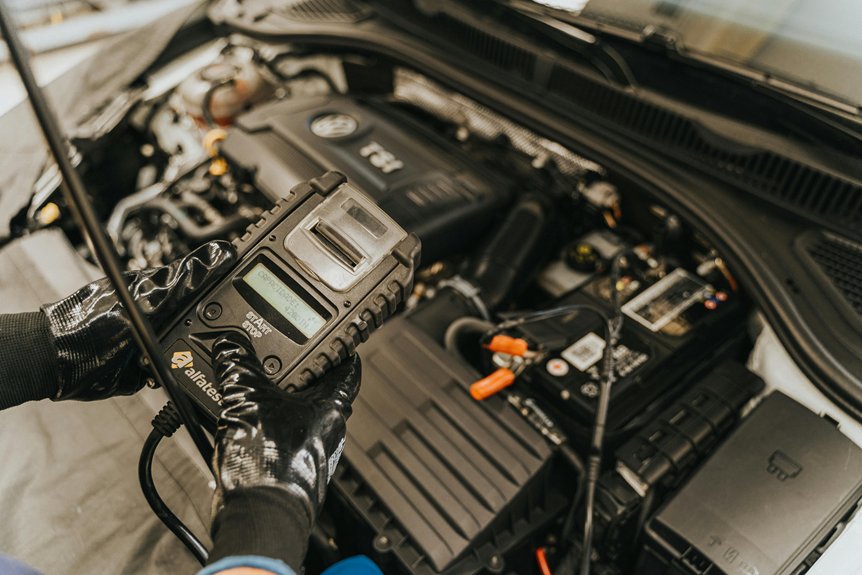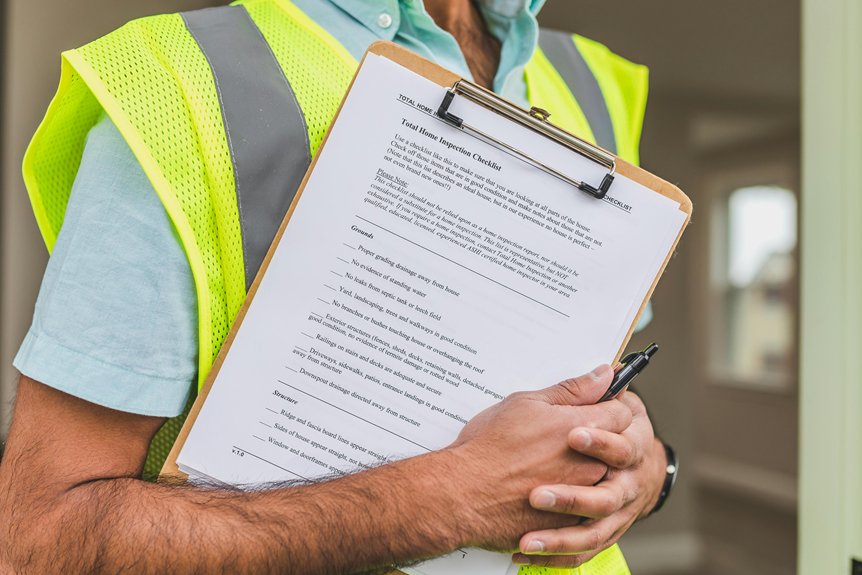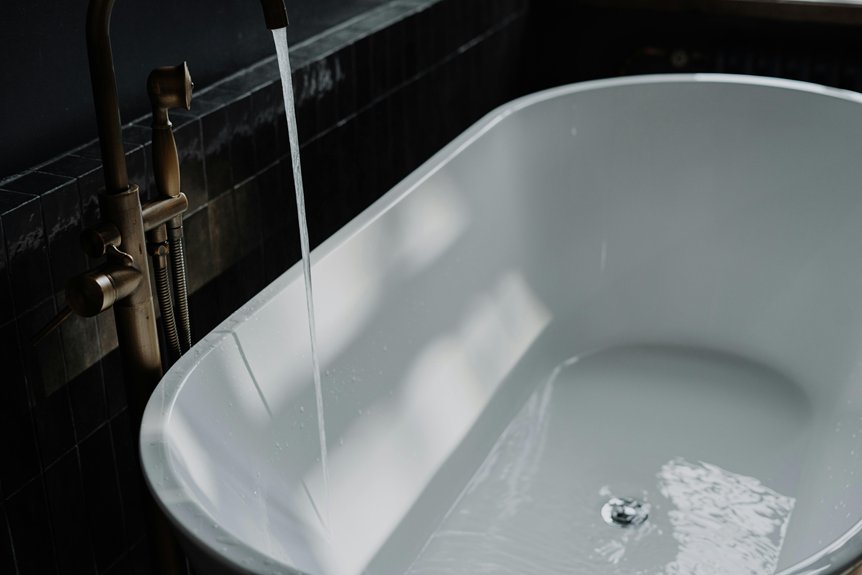A home maintenance inspection is an important process that evaluates your property’s overall condition. It focuses on essential systems like roofing, plumbing, and electrical setups. By identifying potential issues early, you can prevent minor problems from escalating into costly repairs. Understanding the importance of these inspections can greatly impact your home’s safety and value. However, the details of what to expect and how to prepare are essential for maximizing their benefits.
Key Takeaways
- A home maintenance inspection is a systematic evaluation of a property’s condition to ensure safety and preserve its value.
- Regular inspections identify potential issues early, preventing costly repairs and enhancing the home’s overall safety and efficiency.
- Key components assessed include the roof, plumbing, electrical systems, HVAC, and the home’s exterior and foundation.
- Seasonal inspections are recommended twice a year, with specific checks for systems like HVAC and plumbing conducted annually or biannually.
- Proactive maintenance through inspections provides peace of mind, improves property aesthetics, and can increase the home’s market value.
Understanding Home Maintenance Inspections

When you explore understanding home maintenance inspections, it’s essential to recognize their role in preserving your property’s value and safety.
As a homeowner, you have responsibilities that include regular assessments of your home’s condition. An inspection checklist serves as a fundamental tool, guiding you through necessary evaluations of critical systems and components.
This proactive approach helps identify potential issues before they escalate, ensuring your home remains in ideal condition. By completing these inspections, you not only safeguard your investment but also maintain a safe living environment for yourself and your family, reinforcing the importance of thorough home maintenance practices.
Key Components of a Home Maintenance Inspection
A thorough home maintenance inspection includes several key components that collectively guarantee your property remains in ideal condition.
Here are the essential elements to evaluate:
- Roof condition: Check for missing shingles, leaks, or signs of wear.
- Plumbing systems: Inspect pipes for leaks, corrosion, and water pressure.
- Electrical systems: Evaluate outlets, circuit breakers, and visible wiring.
- HVAC systems: Assess heating and cooling units for efficiency and maintenance needs.
- Exterior and foundation: Examine siding, gutters, and the stability of the foundation.
Addressing these components ensures your home operates smoothly and prevents costly repairs down the line.
The Benefits of Regular Inspections
Regular inspections not only help you identify potential issues before they escalate but also enhance the overall value and safety of your home.
By implementing routine checks, you guarantee that all systems function efficiently, reducing the likelihood of costly repairs.
Establishing maintenance schedules allows you to systematically address areas requiring attention, fostering a proactive approach. This not only prolongs the lifespan of your home’s components but also improves energy efficiency, leading to lower utility bills.
Ultimately, regular inspections provide peace of mind, knowing your investment is well cared for and you’re minimizing risks that could disrupt your living environment.
Identifying Potential Issues Early
Identifying potential issues early in your home can save you time and money in the long run.
By addressing problems before they escalate, you can implement cost-effective solutions that enhance your property’s value.
Regular inspections not only protect your investment but also guarantee a safe and comfortable living environment.
Early Problem Detection
While many homeowners may overlook routine inspections, early problem detection is vital for maintaining the integrity of your property. By identifying issues before they escalate, you can implement preventive measures and enhance your maintenance planning.
Consider these key areas during inspections:
- Roof condition and potential leaks
- Plumbing for hidden leaks and corrosion
- Electrical systems for outdated wiring
- HVAC systems for efficiency and performance
- Foundation for cracks or settling
Addressing these concerns early not only safeguards your home but also prevents costly repairs down the line.
Prioritizing inspections guarantees a proactive approach to your property’s health.
Cost-Effective Solutions
Proactive home maintenance inspections not only help you spot issues early but also pave the way for cost-effective solutions.
When you identify potential problems before they escalate, you can implement cost-saving measures that greatly reduce repair expenses. By prioritizing maintenance budgeting, you allocate resources more efficiently, ensuring that funds are available for necessary repairs without straining your finances.
This strategic approach not only minimizes unexpected costs but also extends the lifespan of your home’s systems and components. Ultimately, early detection and timely interventions lead to a well-maintained home, preserving both your investment and peace of mind.
Enhanced Property Value
When you regularly conduct home maintenance inspections, you not only safeguard your living environment but also enhance your property’s overall value.
Identifying potential issues early can greatly boost your property appeal and guarantee market readiness.
- Prevent costly repairs down the line
- Maintain structural integrity
- Enhance aesthetic and functional aspects
- Increase buyer confidence during showings
- Support accurate property appraisals
Enhancing Safety and Security
Enhancing safety and security in your home starts with identifying hazards early.
Regular maintenance inspections help you spot potential risks before they lead to accidents, allowing you to take corrective action promptly.
Not only does this protect your family, but it also contributes positively to your property’s overall value.
Identifying Hazards Early
A thorough home maintenance inspection acts as a critical safeguard against potential hazards. By conducting regular hazard assessments, you can enhance your risk management strategy and identify issues before they escalate.
Here are key areas to focus on:
- Electrical systems for frayed wires
- Plumbing for leaks or corrosion
- Roof and gutters for wear or blockages
- HVAC systems for inefficiencies or malfunctions
- Structural integrity, including foundation cracks
Addressing these concerns early not only guarantees safety but also protects your investment, ultimately creating a more secure living environment for you and your family.
Preventing Accidents Effectively
While regular home maintenance inspections are essential, implementing preventive measures can greatly reduce the risk of accidents in your living space.
You should establish effective safety protocols, such as installing smoke detectors, carbon monoxide detectors, and securing heavy furniture to walls. Regularly check for frayed wires, slippery floors, and proper lighting in hallways.
Additionally, verify that all safety equipment, like fire extinguishers, is easily accessible and up-to-date.
Enhancing Property Value
Investing in home safety and security measures can greatly boost your property’s value.
Enhancing both safety and security not only protects your family but also improves property aesthetics, making it more appealing to potential buyers. A well-secured home aligns with current market demand, ensuring your investment pays off.
Consider these enhancements:
- High-quality locks on doors and windows
- Security cameras for monitoring
- Motion sensor outdoor lighting
- Fire alarms and carbon monoxide detectors
- Fencing for privacy and security
Impact on Property Value

Regular home maintenance inspections play an essential role in preserving and even enhancing your property’s value. By identifying potential issues early, you can maintain your property’s aesthetics, ensuring it remains appealing to prospective buyers.
Properties that are well-maintained tend to align better with current market trends, making them more competitive in the real estate market. Additionally, a documented history of inspections can instill confidence in buyers, potentially leading to higher offers.
Ultimately, consistent inspections not only protect your investment but also contribute to long-term appreciation, making it a wise strategy for any homeowner looking to maximize property value.
Choosing the Right Professional for Inspections
To maintain and enhance your property’s value, selecting the right professional for home inspections is essential.
When evaluating potential inspectors, consider these key factors:
- Inspector qualifications: Confirm they’ve appropriate certifications and licenses.
- Experience matters: Look for a professional with a proven track record in home inspections.
- References: Ask for testimonials from previous clients to gauge their reliability.
- Specialization: Consider inspectors who specialize in specific areas relevant to your property.
- Insurance: Verify that they carry liability insurance for added protection.
Choosing wisely will help you avoid costly surprises and keep your home in top condition.
How Often Should You Schedule an Inspection?
How often should you schedule a home inspection? It’s essential to conduct seasonal inspections to catch issues early, ensuring your home remains in top shape. Aim for routine maintenance checks at least twice a year, ideally before summer and winter.
| Inspection Type | Frequency |
|---|---|
| Seasonal Inspections | Twice a year |
| Roof & Gutter Check | Annually |
| HVAC System Inspection | Biannually |
| Plumbing Check | Annually |
Tips for Homeowners During an Inspection
A successful home inspection requires homeowners to be proactive and prepared.
To guarantee you’re ready, use a pre-inspection checklist that covers essential areas. Here are some tips for homeowner preparedness:
- Clear pathways to major systems (HVAC, plumbing, electrical).
- Confirm all areas are accessible (attics, basements, crawl spaces).
- Document any known issues for the inspector.
- Keep records of repairs and maintenance handy.
- Be available to answer any questions during the inspection.
Conclusion
In summary, scheduling regular home maintenance inspections is essential for safeguarding your property and ensuring your family’s well-being. By proactively identifying potential issues, you enhance safety, secure your investment, and maintain your home’s value. Choosing a qualified professional for these inspections can make a significant difference in the thoroughness of the evaluation. Ultimately, staying vigilant about your home’s condition not only saves you money in the long run but also provides peace of mind in your living environment.




